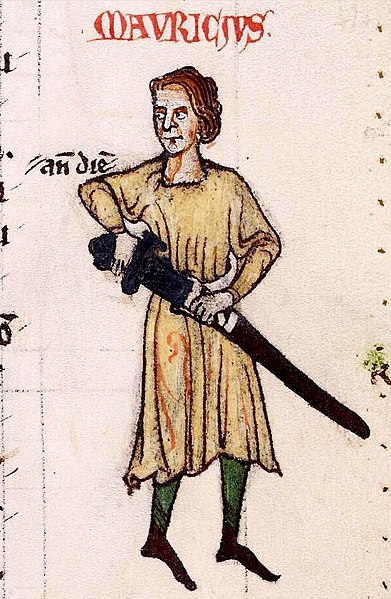Protestantism is a Christian minority on the island of Ireland. In the 2011 census of Northern Ireland, 48% (883,768) described themselves as Protestant, which was a decline of approximately 5% from the 2001 census. In the 2011 census of the Republic of Ireland, 4.27% of the population described themselves as Protestant. In the Republic, Protestantism was the second largest religious grouping until the 2002 census in which they were exceeded by those who chose "No Religion". Some forms of Protestantism existed in Ireland in the early 16th century before the English Reformation, but demographically speaking these were very insignificant and the real influx of Protestantism began only with the spread of the English Reformation to Ireland. The Church of Ireland was established by King Henry VIII of England, who had himself proclaimed as King of Ireland.
The Church of Ireland's national Cathedral and Collegiate Church of Saint Patrick, Dublin
Hiberno-Normans, or Norman Irish, refer to Irish families descended from Norman settlers who arrived during the Anglo-Norman invasion of Ireland in the 12th century, mainly from England and Wales. During the High Middle Ages and Late Middle Ages, the Hiberno-Normans constituted a feudal aristocracy and merchant oligarchy, known as the Lordship of Ireland. The Hiberno-Normans were also closely associated with the Gregorian Reform of the Catholic Church in Ireland and were responsible for the emergence of Hiberno-English.
The Pale in 1488
Monument marking the site of the capture and execution of the Earl of Desmond James FitzMaurice FitzGerald in Glanageenty forest, County Kerry.
Kilkenny Castle, seat of the General Assembly of the Irish Confederacy (1642-1652), an independent government composed of Gaelic and Old English Catholic aristocrats
Maurice FitzGerald, Lord of Maynooth, Naas, and Llansteffan, progenitor of the Irish FitzGerald dynasty





